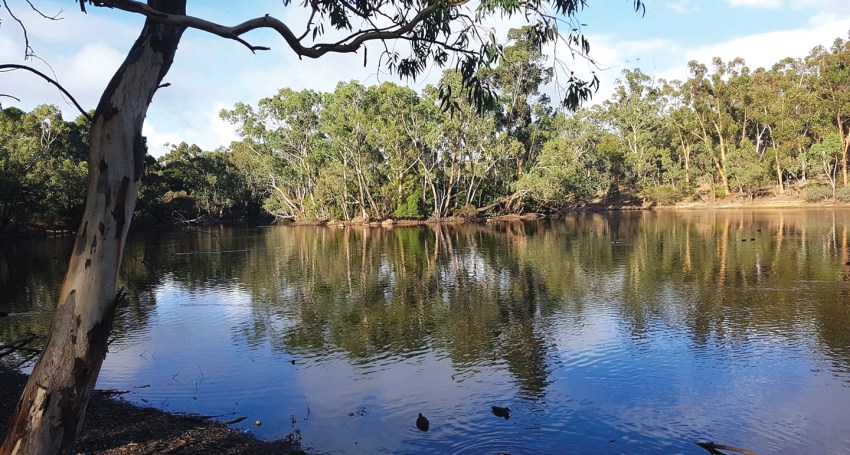Always was, always will be
Opinion
Many years ago now, our very own Fr Denis Edwards wrote a book entitled Called to be Church in Australia, describing an approach that could bring about a renewal of life and faith in our local churches. In this book, he suggested that as an Australian Church we need to learn from and approach Aboriginal experience of the land as ‘apprentices in faith’

In doing this, he acknowledges that for the Indigenous Peoples of our land, the Spirit has been present, creative and hovering over all of creation in our land for many thousands of years, and that the Aboriginal peoples have always cherished and reflected on their relationship with the land and this creative spirit through their Dreaming stories and their relationships with one another.
Miriam-Rose Ungunmerr is an Aboriginal Elder and wisdom figure who lives in the top end of the Northern Territory. She speaks about what she sees as a gift that she would like to share with all Australians. This gift is called ‘Dadirri’ and it means a deep listening: to creation, to one another, to the Dreaming or sacred family stories, to the needs of others, to the traumas and difficulties experienced over many years by Aboriginal Peoples, to the cries for justice and for finding a voice.
Advertisement
Miriam-Rose describes this gift as that which calls us to reconciliation with one another, to healing and to restoring peace and harmony with all of creation. By consciously being one with, listening to the inner movements and murmurings of the Spirit, we can find a sense of deep peace for ourselves. This may also be the means by which we can extend the hand of friendship, acknowledge our need for forgiveness from those most affected by real injustices and excesses, and have a humble awareness of all that we can learn by living as brother and sister in this great southern land of the Holy Spirit.
This year’s NAIDOC theme is ‘Always was, always will be’. In celebrating NAIDOC this year, all Australians are invited to listen, to learn, to honour and to celebrate the truth that for over 65,000 years our First Peoples lived, worked, respected and cared for the land. They developed wonderful technologies, artworks, and storytelling in ways that also reflected their deep appreciation for community – family – and development of harmonious relationships with the land and all of creation.
Advertisement
As Christians, when we come together as family to celebrate the Eucharist, we bring with us the joys, the hopes, the concerns and the anxieties of daily life. We come together to hear our sacred stories in the Scriptures, we celebrate the sacred meal of the Eucharist and then we return to daily life strengthened for the journey ahead. Time spent together reflecting on our family story is a way of entering into a deep inner space to discover the God of life already there. Such times of reflection can also happen in outdoor places of beauty where we can be close to creation.
There is a sense of wholeness in the gift of Dadirri that the Aboriginal Peoples would like to share with us: a call to deep inner peace out of which healing and reconciliation between Indigenous and non-indigenous Australians may develop. The process will be long and challenging, but working together, supporting and learning to understand one another will surely provide a way forward. As ‘apprentices in faith’, a deep inner listening to the promptings of the Spirit in our lives may well be a catalyst for working together towards a deep ecological conversion and respectful care for all creation. A prayer we often share is: ‘Glory be to the Father, and to the Son and to the Holy Spirit. As it was in the beginning, is now and ever shall be, world without end.’ This prayer resonates with ‘Always was, always will be’.
Kathy Horan is liturgy educator with the Office for Worship.








Comments
Show comments Hide comments